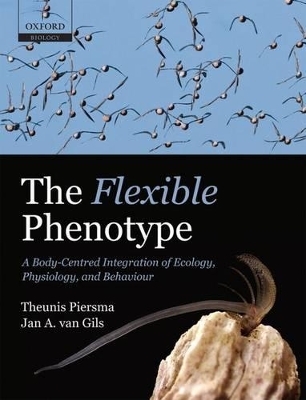
The Flexible Phenotype
Oxford University Press (Verlag)
978-0-19-959724-6 (ISBN)
The Flexible Phenotype attempts a true synthesis of physiology, behaviour, and ecology by developing an empirical argument that describes the intimate connections between phenotypes and their environments. It portrays an ecological angle to the rapidly growing extended synthesis in evolutionary biology that incorporates developmental processes, self-organization, and the multiple dimensions of inheritance. The book starts with a synthesis of the principles guiding current research in ecophysiology, functional morphology, and behavioural ecology. Each aspect is illustrated with the detailed results of empirical work on as wide a range of organisms as possible. The integrated story of the flexible phenotype is woven throughout the book on the basis of the authors' long-term research on migrant shorebirds and their invertebrate prey. These birds travel vast distances from one environment to another, and the changing nature of their bodies reflects the varied selection pressures experienced in the course of their globe-spanning migrations. In essence, the authors argue for the existence of direct, measurable, links between phenotype and ecology, mediated by developmental processes. Their book outlines a more encompassing approach to evolutionary ecology, based on first principles in physiology, behaviour, and ecology. It aspires to encourage a further integration of ecology and physiology, as well as fostering a collaborative research agenda between ecologists, physiologists, and developmental biologists.
Theunis Piersma is Professor of Animal Ecology at the University of Groningen and a senior research scientist with the Royal Netherlands Institute for Sea Research (NIOZ) on Texel. Together with his internationally oriented research teams at Groningen and Texel he investigates how the distribution and numbers of shorebirds and meadowbirds are a function of climate, food, predators, pathogens, as well as the historic-genetic background of the respective species and populations. He has co-authored several books and published about 300 refereed research papers. In 2004 he received the Three-annual Prize for Nature Conservation from the Prince Bernhard Culture Fund, the Ornithologenpreis of the German Ornithologists' Society and the first Luc Hoffmann Medal for Excellence in wetland science and conservation of Wetlands International. He was elected to the Royal Netherlands Academy of Arts and Sciences (KNAW) in 2009. Jan A. van Gils studied biology at the University of Groningen. His PhD thesis (2004) on Red Knots focused on foraging decisions during the non-breeding season and how optimal choices co-vary throughout the year with a migrant's flexible body. In his current position as a research scientist at NIOZ, Jan studies the distributional ecology of avian migrants at the individual level, and how their foraging impacts community functioning. He often takes a theoretical approach, building and testing models based on measurements collected in the field, but also under controlled conditions in the laboratory. Although his studies are curiosity-driven, they find their applications in societal issues such as habitat destruction, global warming and bird flu. Recently awarded a prestigious VIDI-grant from the Netherlands Organization for Scientific Research (NWO), his publication record meanwhile includes about 35 peer-reviewed papers.
PART I - BASICS OF ORGANISMAL DESIGN ; PART II - ADDING ENVIRONMENT ; PART III - ADDING BEHAVIOUR ; PART IV - TOWARDS A FULLY INTEGRATED VIEW
| Erscheint lt. Verlag | 4.11.2010 |
|---|---|
| Reihe/Serie | Oxford Biology |
| Zusatzinfo | 120 black and white illustrations |
| Verlagsort | Oxford |
| Sprache | englisch |
| Maße | 190 x 247 mm |
| Gewicht | 549 g |
| Themenwelt | Studium ► 1. Studienabschnitt (Vorklinik) ► Physiologie |
| Naturwissenschaften ► Biologie ► Evolution | |
| Naturwissenschaften ► Biologie ► Genetik / Molekularbiologie | |
| Naturwissenschaften ► Biologie ► Zoologie | |
| ISBN-10 | 0-19-959724-3 / 0199597243 |
| ISBN-13 | 978-0-19-959724-6 / 9780199597246 |
| Zustand | Neuware |
| Haben Sie eine Frage zum Produkt? |
aus dem Bereich


